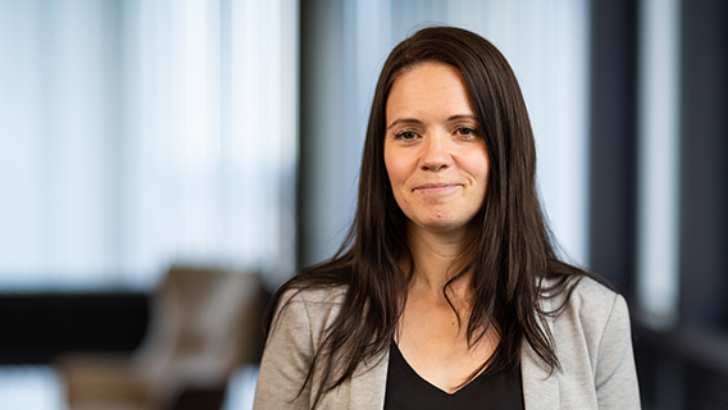(London) – Aviva Investors, the global asset management business of Aviva plc, has called for immediate action from global policymakers to tackle the overuse of antibiotics and antimicrobials, through the formation of a dedicated intergovernmental panel, modelled on the Intergovernmental Panel on Climate Change.
The proposal comes ahead of the United Nations’ COP 15 Biodiversity Conference, as research suggests climate change and biodiversity loss are likely to increase the severity and frequency of antimicrobial resistance (‘AMR’) and heighten the risk of key medicines ceasing to work. Antibiotics have been a global success story to the extent that many pathogens are not considered particularly alarming. However, a new report from Aviva Investors, in partnership with the British Society for Antimicrobial Chemotherapy (BSAC) and the University of Exeter, highlights how overuse could lead to growing levels of drug-resistant bacteria.
The report, ‘Confronting a permacrisis? The intersection between antimicrobial resistance, climate change and biodiversity loss’, also details how biodiversity loss and climate change are accelerating existing antibiotic resistance and contributing to an increased spread of certain pathogens, with antimicrobials – an essential part of the human body’s defence against disease – becoming less effective.
Ahead of the United Nations’ COP 15 Biodiversity Conference, Aviva Investors has made a series of proposals to tackle the growing issue of AMR (see below), including the creation of an international panel of scientists, modelled on the Intergovernmental Panel on Climate Change (IPCC), which would contribute to more rigorous reviews and monitoring.
Mark Versey, Chief Executive Officer at Aviva Investors, said:
“The warning from G7 finance and health ministers that the antimicrobials we rely on to treat infections in humans, animals and plants will no longer be effective has enormous, global, implications. As an investor, we recognise the vitally important role we can play in ensuring the companies we invest in take material consideration of antimicrobials and AMR, however this can only be effective if every group plays its part. As with the climate crisis and biodiversity loss, we need better global governance mechanisms in place to get ahead of the antibiotic resistance problem.”
The paper also predicts that more frequent extreme weather events, coupled with the melting of permafrost and glacial ice bodies in a warming world, will allow more viruses and bacteria to be released into the air and mobilise. With storms and floods already displacing populations and disrupting wastewater management, more cases of waterborne diseases are expected across the globe. Aviva Investors, BSAC and the University of Exeter expect a rise in zoonoses, where pathogens leap across species from animal populations to humans, and as seen with COVID-19, made worse as native habitats are destroyed through deforestation.
Yet, at present, there is no international scientific body overseeing the management of antimicrobials, and attention to AMR is lacking in crucial frameworks such as the UN Sustainable Development Goals, the European Union’s Sustainable Finance Disclosure Regulation, or the taxonomy for sustainable activities.
The recommendations in the paper (see full list below) are the latest calls to action from the macro stewardship team at Aviva Investors. They follow the proposals the firm published ahead of the COP27 United Nations Climate Change Conference in Egypt, which called for the creation of a global transition plan for finance to reform the global financial architecture and mobilise private capital to avert a climatic catastrophe.
Abigail Herron, Global Head of ESG Strategic Partnerships, Sustainable Finance Centre for Excellence, at Aviva Investors, said:
“Antibiotics and antimicrobials have underpinned industrial agriculture and modern medicine, but their overuse has increased the emergence of drug-resistant ‘superbugs’. Our research with the BSAC and University of Exeter shows that this, coupled with a warming world and reduced biodiversity, is likely to leave populations exposed to a greater range of pathogens which lack effective treatments. We are therefore calling for the creation of a scientific body to oversee and manage this existential risk, to ensure it is properly built into multilateral agreements such as the UN Sustainable Development Goals, as well as financial disclosure regulations and corporate governance functions, so it can be confronted head-on.”
Key policy asks from Aviva Investors:
To address AMR in a warming world with reduced biodiversity, Aviva Investors is calling for:
· An international panel of scientists to address AMR, modelled on the Intergovernmental Panel on Climate Change (IPCC), which would contribute to more rigorous reviews and monitoring.
· A ban on the use of antimicrobials in agricultural supply chains for prophylactic treatment and growth stimulation.
· Global leadership from the G7, G20 and G77, furthering progress made under the UK G7 Presidency, where Finance Ministers committed to strengthen antimicrobial development through ‘pull’ incentive mechanisms for the developers of novel antimicrobials.
· Coherent national responses, where governments embed antimicrobial stewardship (AMS) in health, economic, trade and financial decision-making processes and within regulatory and legislative architecture.
· Tighter standard setting and enforcement of water quality related to wastewater from antibiotic use and in the production of antibiotics in watercourses and public bathing areas, taking account of AMR Industry Alliance standards.



